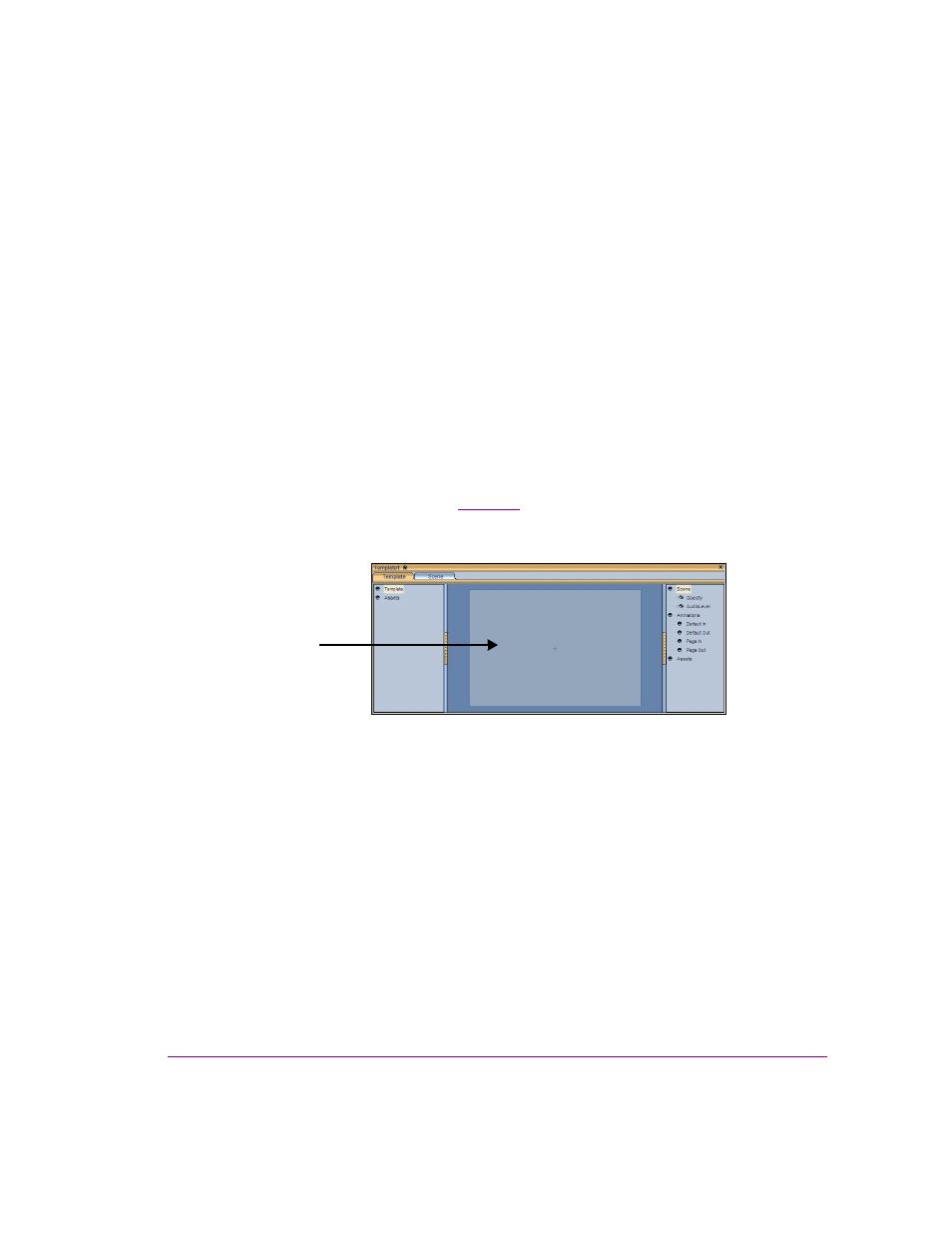Grass Valley Xstudio Vertigo Suite v.4.10 User Manual
Page 94

Xstudio User Manual
5-1
5 A
DDING
AND
PREPARING
OBJECTS
ON
THE
X
STUDIO
CANVAS
In Design mode, Xstudio projects (Templates, Control Panel and Scenes) are created and/or
edited on the canvas. As described on
, the canvas is the work area onto which you
drag-and-drop assets and/or primitives, and then arrange them (e.g. aligned, layered, grouped)
to create functional and attractive graphics displays (scenes) and control panels.
Figure 5-1. The canvas is the work area onto which you drag-and-drop assets and/or primitives
Xstudio’s Asset Browser and Gallery Browser provide you with immediate access to all of
the assets (i.e. images, clips, cel animations...etc.) that are available on the system for
creating compelling graphics displays. Alternatively, you can use Xstudio’s primitives (e.g.
text boxes, buttons, images, clip), which are empty objects that you can use to create or
control graphics elements within Xstudio scenes and control panels.
Since the scene represents the on-air look of the broadcast graphic, you will spend time
carefully placing and arranging objects on the scene’s canvas to achieve the desired look.
To help you achieve the desired look, Xstudio’s Preview feature allows you to see exactly
what the scene will look like on air by previewing it on the output device as you are creating
the scene. As you add, move and edit objects on the scene, the preview is updated on the
output device in real-time, so you can see the results of any edits that you make to the scene
right away.
Canvas
